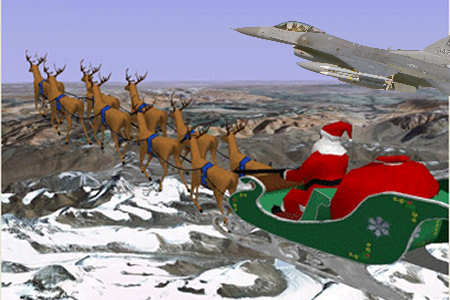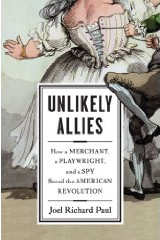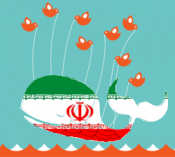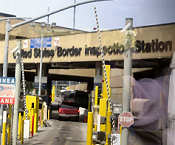 After seeing that CNN was doing a feature on the top ten YouTube videos of 2009, the staff at Export Law Blog decided that we no longer had an excuse not to recount the top 10 export stories of 2009. However, we can’t guarantee anything quite as awesome as the YouTube video of the toddler dancing to Beyoncé’s Single Ladies (Put A Ring On It). But here goes anyway, in reverse order:
After seeing that CNN was doing a feature on the top ten YouTube videos of 2009, the staff at Export Law Blog decided that we no longer had an excuse not to recount the top 10 export stories of 2009. However, we can’t guarantee anything quite as awesome as the YouTube video of the toddler dancing to Beyoncé’s Single Ladies (Put A Ring On It). But here goes anyway, in reverse order:
10. Nobody really knows what Part 129’s definition of arms broker includes but it certainly included a website from a Portland yacht broker trying to find customers for an armed hovercraft being sold by somebody in Eastern Europe for $60 million. Several days after the web page appeared, it was yanked.
9. BIS amended its rules to control the export of tonfas and sjamboks. And, no, these are not menu items found in Asian restaurants.
8. Canada actually prosecuted someone for an export violation.
7. Iran used eBay to buy military aircraft parts from eBay dealers who, apparently, thought that DDTC stands for Dauphin Dog Training Club.
6. OFAC and BIS amended the rules implementing the Cuba sanctions to allow more exports of cellphones, computers, peripherals and digital devices to Cuba. Three months later Cuba arrested a U.S. citizen distributing laptops and cellphones in Cuba to Cuban citizens.
5. French export control officer for Luxembourg-based Qioptiq SARL urged company employees not to consult U.S. export lawyers because they “play by the book” and will “push you to” disclose export violations. DDTC briefly abandoned its distaste for export lawyers and fined Qioptiq $25 million dollars.
4. DDTC finally released its amended brokering regulations. The entire world wished it hadn’t.
3. OFAC and the State Department finally discovered the Internet and realized that letting ordinary people in sanctioned countries use Twitter, Facebook and YouTube might actually be good for world democracy.
2. The United States Court of Appeals for the Seventh Circuit smacked down the DOJ’s outrageous (and routine) assertion that courts can’t review DDTC’s determination that a particular item fits in a particular USML category. The money quote:
A designation by an unnamed official, using unspecified criteria, that is put in a desk drawer, taken out only for use at a criminal trial, and immune from any evaluation by the judiciary, is the sort of tactic usually associated with totalitarian régimes.
1. U.S. authorities liberated $536 million from Swiss bank vaults after Credit Suisse was caught lying to U.S. banks in order to clear U.S. dollar transactions for Iran. “Neutrality,” the Swiss learned yet again, isn’t free.

 Posted by
Posted by  Category:
Category: 


 With the federal government closed by snow, it’s a slow day for export news, which gives me the opportunity to plug “Unlikely Allies” by Joel Richard Paul. The book which reads like a novel of eighteenth-century intrigue recounts the true story of America’s first arms-broker, Silas Deane. Professor Paul, who teaches at UC-Hastings Law School, has written a book about arms-smuggling, intrigue in the Court of Versailles, duplicity, espionage and the most-unlikely cast of characters you might encounter outside of, say, a Mozart opera.
With the federal government closed by snow, it’s a slow day for export news, which gives me the opportunity to plug “Unlikely Allies” by Joel Richard Paul. The book which reads like a novel of eighteenth-century intrigue recounts the true story of America’s first arms-broker, Silas Deane. Professor Paul, who teaches at UC-Hastings Law School, has written a book about arms-smuggling, intrigue in the Court of Versailles, duplicity, espionage and the most-unlikely cast of characters you might encounter outside of, say, a Mozart opera. The Department of State sent on Tuesday, December 15, Â a
The Department of State sent on Tuesday, December 15, Â a  Two men, one in Texas and one in New Jersey, have pleaded guilty to violations of
Two men, one in Texas and one in New Jersey, have pleaded guilty to violations of 

